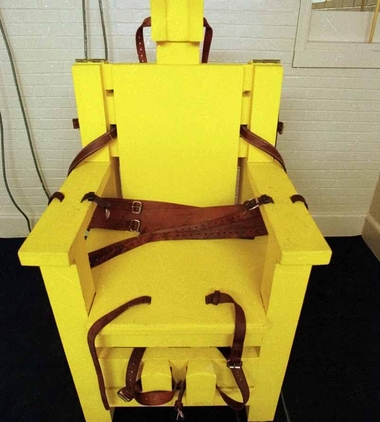Oklahoma Death Penalty SQ won’t change law

SQ 776 exposes state to litigation and cost
by Ken Townsend
Senior Editor
When the Oklahoma voters go to the polls in November, they will specifically be asked to vote yes or no on SQ 776, which would add language to the Oklahoma State Constitution relating to the death penalty.
This State Question has many opponents, both conservative and progressive and few proponents even among those favoring the death penalty.
The two biggest arguments against its passage are that it creates an additional layer of state bureaucracy, and exposes the State to almost certain legal challenges and the costs related to each case, at a time when the State is desperately short of funds.
Opponents further argue the issues involved here are already addressed by state statutes.
The measure would add these constitutional requirements:
1. The Legislature is expressly empowered to designate any method of execution not prohibited by the United States Constitution. (In fact, Oklahoma statute already authorizes several methods of execution, including nitrogen hypoxia, firing squad and electrocution and does not preclude any other not prohibited by the U.S. Constitution.)
2. Death sentences shall not be reduced because a method of execution is ruled to be invalid. (This already is not allowed.)
3. When an execution method is declared invalid, the death penalty imposed shall remain in force until it can be carried out using any valid execution method. (There are no existing provisions for this to happen now.), and
4. The imposition of a death penalty under Oklahoma law - as distinguished from a method of execution - shall not be deemed or be, or constitute, the infliction of cruel or unusual punishment under Oklahoma’s Constitution, nor to contravene any provision of the Oklahoma Constitution. (This is the provision most likely to lead to costly litigation because it is ultimately a judicial decision as to whether anything is cruel or unusual punishment, and not a decision of the people.)
This State Question was authored in the Senate by Sen. Anthony Sykes, a Republican legislator who has authored, co-authored or voted for several controversial or unconstitutional bills in Oklahoma.
Among the most notorious are:
1. Co-author of State Question 755 in 2010 banning Sharia Law in Oklahoma, which passed, but was later ruled unconstitutional by the 10th District Court,
2. Voted for a bill to repeal all Oklahoma income tax,
3. Co-author of a joint resolution to require all Oklahoma U.S. Representatives to file articles of impeachment against President Obama over the non-discrimination policy regarding bathroom use, and
4. Just this past session, as chair of the judiciary committee, blocked a bill by Republican legislator Kyle Lovelace that would have prevented the asset forfeiture policy that allows police to seize and keep a person’s assets, even when not convicted or even charged with a crime.
Copyright 2016 The Gayly – October 17, 2016 @ 3:25 p.m.





